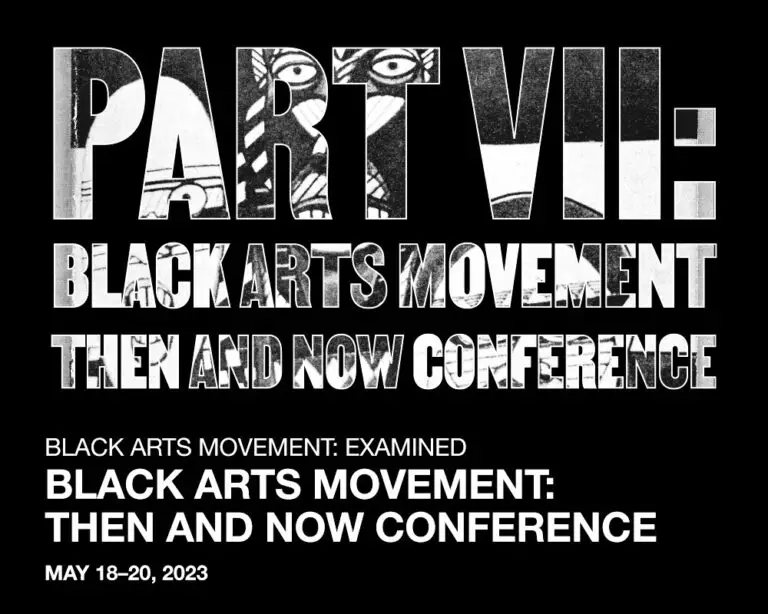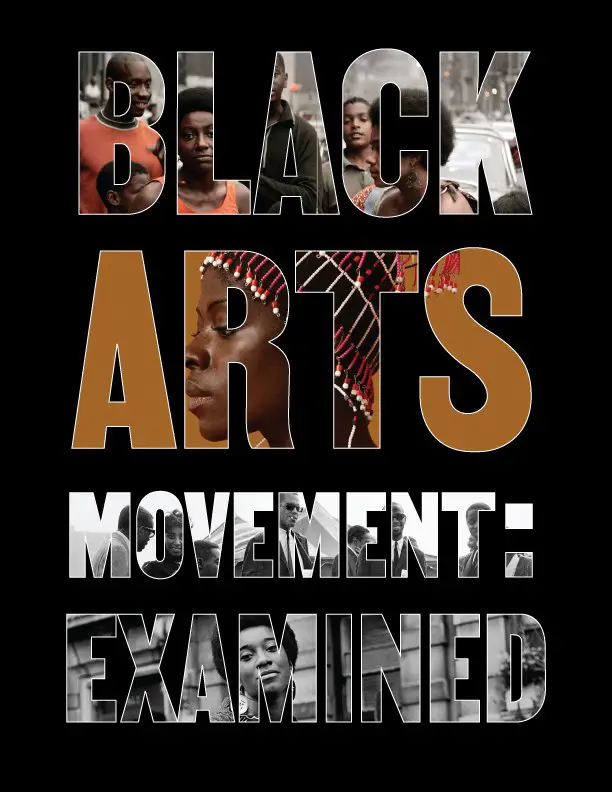Patricia Cruz, artistic director and CEO of Harlem Stage invites iconic Contemporary Black artists and thinkers to the Black Arts Movement: Then and Now Conference, to be held from May 18-20 and curated by Harlem Stage Associate Artistic Director/Artist-in-Residence Carl Hancock Rux.

The Black Arts Movement: Then and Now Conference culminates Harlem Stage’s 2022-23 season-long initiative Black Arts Movement: Examined. This is a series of events devoted to escalating the understanding of the historic and cultural relevance of Black Arts Movement and its intersections with the Black Power Movement. The Black Arts Movement: Examined emerged from a conversation between Rux and Cruz about how it might result as a bridge to an exploration of Black art and activism in contemporary America.
The conference will explore areas of tension between the intellectual, ethical, and commercial imperatives of the Black Arts Movement, its scholarship, and the professional demands many of its leaders imposed upon artists, and whether or not the Black Arts Movement’s libertarian, racism-countering goals were ever truly achieved.
– Carl Hancock Rux
The event will kick off at 5pm with a keynote address by the poet, music critic, and arts administrator A.B. Spellman. He is a Director of The Expansion Arts Program at the National Endowment for the Arts, which funded arts organizations that were in and of inner-city, rural, and tribal communities. Thirty minutes later, Miles Davis, Quincy Troupe, David Henderson, and Margo Crawford will respond to A.B. Spellman’s overview, giving further elucidation to the movement’s aesthetic, development, internal and external tensions. These special guests will also explore the movement’s relationship to the Black Power Movement, the AfriCOBRA movement, and Black cultural expression as resistance, and offer a fundamental re-evaluation of its complicated relationship with political insurgency and the larger Black community.
On the second day at 10pm there will be a Black Masculinity Discussion moderated by Jonathan McCrory and featuring Felipe Luciano, Stew, Brent Hayes Edwards, and Lois Elaine Griffith. The set will examine the articulation of misogyny and homophobia often deployed by the Black Arts Movement in service to a masculinist vision of Black liberation principles and its constitution of “real” Blackness. Following that talk will be the discussion Music & Struggle with Angela Davis, Nona Hendryx, and Toshi Reagon Nona Hendryx. Next will be conversations with the activist Sonia Sanchez and multi-award-winning poet Carl Hancock Rux. The final celebration for that day will be a concert showcasing Henry Threadgill, Craig Taborn, and Dafnis Prieto.

The last day of The Black Arts Movement: Then and Now Conference will begin with a discussion called Poder Latino with Felipe Luciano, Lois Elaine Griffith, and more. The speakers will explore the Afro-Latinx cross-cultural influence on the intersection of European colonialism and the Trans-Atlantic slave trade, and the complexities of the Afro-Latinx relationship to the Black Arts Movement. After an 11:30 lunch, the audience will be treated to a Film Screening titled, “Portrait of Jason by Shirley Clarke” in collaboration with Maysles Documentary Center. The film is an experimental documentary by Academy Award-winning filmmaker Shirley Clarke. Ingmar Bergman referred to the production saying it was “the most fascinating film he had ever seen in his life”
After the documentary will be a discourse called “Crisis of the Negro Intellectual”. This conversation will be moderated by Margo Crawford and features Harmony Holiday, Michael Sawyer & Dominic Taylor, moderated by Margo Crawford. To end the conference the audience will be presented with a Closing Plenary by Carl Hancock Rux and a closing-night, curated by Carl Hancock Rux, Tavia Nyong’o, and Vernon Reid. The closing-night will also showcase contributions by Carrie Mae Weems, Stefanie Batten Bland, and Dianne Smith and co-presented with Park Avenue Armory.
More information about the Harlem Stage can be found here.


Comments are closed.